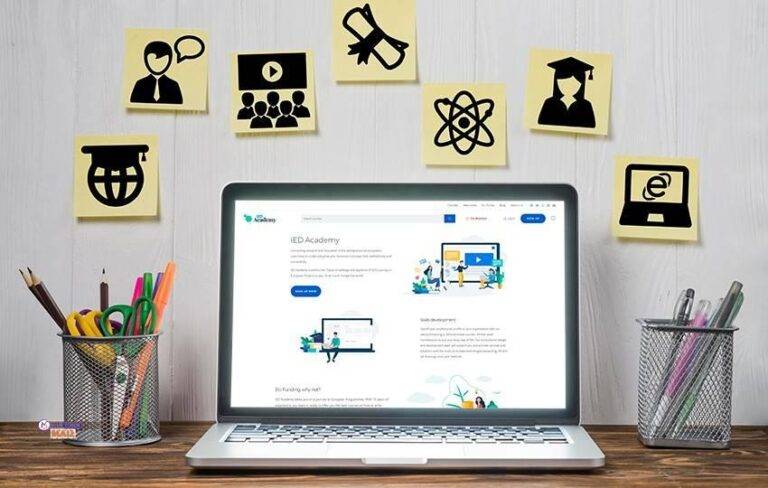Impacts of Digitization: Focusing on GES-MIS

The Positive Impact of Digitization on Businesses and Institutions: A Focus on the Ghana Education Service Management Information System (GES-MIS)
In an era defined by rapid technological advancement, digitization has emerged as a transformative force across industries and institutions. From enhancing operational efficiency to fostering transparency and accountability, the benefits of digitization are profound and far-reaching.
This blog post delves into the positive impacts of digitization on businesses and institutions, with a particular emphasis on the Ghana Education Service Management Information System (GES-MIS).
Launched by Dr. Eric Nkansah, the Director General of the Ghana Education Service, GES-MIS aims to address critical challenges in the education sector, including corruption, ghost names, intimidation, and salary anomalies, while promoting better teacher performance and overall development.

The Transformative Power of Digitization
1. Streamlining Operations
Digitization enables organizations to streamline their operations by automating routine tasks and reducing reliance on paper-based processes. This automation not only saves time but also minimizes errors, leading to improved productivity.
For businesses, this means faster service delivery and enhanced customer satisfaction. In the context of the Ghana Education Service, digitization through GES-MIS allows for efficient management of educational resources, staff, and student data, ultimately leading to better educational outcomes.
2. Enhanced Data Management and Analysis
In the digital age, data is a valuable asset. Organizations that harness data effectively can make informed decisions that drive growth and innovation.
Digitization facilitates the collection, storage, and analysis of vast amounts of data. For GES, this means having access to accurate and timely information about teachers, students, and resources.
By leveraging data analytics, GES can identify trends, assess performance, and implement targeted interventions to improve the education system.
3. Improved Transparency and Accountability
Transparency is a cornerstone of effective governance. Digitization fosters a culture of openness by making information readily accessible to stakeholders.
This is particularly important in sectors like education, where public trust is essential. GES-MIS enhances transparency by providing a platform where stakeholders like teachers, parents, policymakers, lawyers, etc. can access relevant information about educational resources and processes. This transparency helps to build trust and accountability within the education system.
4. Enhanced Communication and Collaboration
The digital landscape has revolutionized communication, enabling seamless interactions among teams and stakeholders. Businesses can utilize digital tools for collaboration, leading to enhanced teamwork and innovation.
In the education sector, GES-MIS facilitates communication between educators, administrators, and policymakers, promoting collaboration and ensuring that everyone is aligned toward common goals.
5. Better Customer Experience
In today’s digital world, customers expect personalized and efficient service. Digitization allows organizations to meet these expectations by providing tailored experiences.
For GES, improving the experience of teachers, students, and parents is critical. GES-MIS enables better communication and engagement, ensuring that all stakeholders have access to the information and support they need.

GES-MIS: A Catalyst for Change in Ghana’s Education Sector

Launched by Dr. Eric Nkansah, the director-general of the Ghana Education System, GES-MIS is a groundbreaking initiative designed to address systemic challenges within the Ghanaian education sector. By digitizing key processes, GES-MIS aims to tackle issues such as corruption, ghost names, intimidation, rank and salary anomalies, and overall teacher and sector performance.
1. Reducing Corruption
Corruption has long been a pervasive issue in many sectors, including education. GES-MIS aims to mitigate corruption by providing a transparent, accountable platform for managing educational resources.
With digitized records and processes, every transaction is traceable, making it more difficult for corrupt practices to occur. This transparency not only safeguards public funds but also enhances the integrity of the education system.
2. Eliminating Ghost Names
Ghost names are individuals listed on the payroll who do not actually exist and have been a significant drain on educational resources in Ghana. GES-MIS employs a comprehensive database that requires verification of staff information, effectively eliminating ghost names.
This ensures that salaries are paid only to legitimate educators, thereby optimizing resource allocation and enhancing the overall efficiency of the education system.
3. Addressing Intimidation and Mismanagement
Intimidation and mismanagement can significantly hinder teacher performance and morale. GES-MIS provides a platform for teachers to report grievances and seek redress without fear of retaliation.
What this also means is that the bribery and exploitations that occur at the various offices and other goro-boys who pride themselves as the so-called saviors deceiving employees of the sector and yet request a percentage for either reinstatement or resolving rank and salary anomalies will be put abey
By promoting a culture of accountability and support, GES-MIS by this move will empower educators to perform at their best, ultimately benefiting students and the education system as a whole.
4. Resolving Rank and Salary Anomalies
Rank and salary discrepancies have long plagued the Ghanaian education sector, leading to dissatisfaction among educators and more often than not being exploited by other offices of the sector with the promise of correction.
The launch of GES-MIS by Dr. Eric Nkansah, assures teachers of accurate tracking of staff rankings and salaries, ensuring that all educators are compensated fairly based on their qualifications and experience. By addressing these anomalies, GES-MIS fosters a more equitable work environment, which is crucial for attracting and retaining talented educators.
5. Promoting Better Teacher Performance
GES-MIS is designed to support continuous professional development for educators. By providing a centralized platform for performance tracking and feedback, GES-MIS empowers teachers to identify areas for improvement and access relevant training resources.
This focus on professional development leads to enhanced teacher performance, which directly translates to better educational outcomes for students.
6. Fostering Transparency and Trust
One of the most significant benefits of GES-MIS is its potential to foster transparency within the education sector. By making information accessible to all stakeholders, GES-MIS builds trust and accountability. This transparency is essential for promoting a positive image of the education sector and encouraging community involvement in educational initiatives.
7. Contributing to the General Development of the Teaching Profession
Ultimately, GES-MIS is a vital tool for the overall development of the teaching profession in Ghana. By addressing systemic issues and promoting a culture of excellence, GES-MIS lays the foundation for a stronger, more effective education system
. A well-functioning education sector is crucial for the development of a skilled and knowledgeable workforce, which is essential for the nation’s growth and progress.
Conclusion
The impact of digitization on businesses and institutions is profound and transformative. From enhancing operational efficiency and data management to promoting transparency and accountability, the benefits are undeniable. In the context of the Ghana Education Service, the introduction of the GES-MIS represents a significant step toward addressing critical challenges within the education sector.
By reducing corruption, eliminating ghost names, resolving salary anomalies, and promoting better teacher performance, GES-MIS has the potential to revolutionize the educational landscape in Ghana. As we embrace the digital age, it is imperative for all stakeholders in the education sector to support initiatives like GES-MIS, ensuring effective implementation and utilization.
The future of education in Ghana depends on our collective commitment to leveraging technology for transparency, accountability, and excellence in teaching and learning. With the right tools and systems in place, we can build a brighter future for educators and students alike, ultimately contributing to the nation’s development and progress.
Shop With US


4PCS Set Bridal Jewelry

Bridal Jewelry Set

18K Gold Plated Jewelry Set
How Migrants Are Shaping the Future of Work

Shop this story

Multi-functional Alloy Table/Bench Clamp Vise Craft Mold Fixed Repair Tool

Car Safety Belt Repair Soldering Plastic Patching Gun Tool

Car Bumper Repair Machine>>100W Plastic Welding Machine Soldering Iron
Further reading

Employment Opportunities in China for Teachers
Employment Opportunities for Teachers in Cuba

Australian Jobs & Scholarships for Teachers
Teaching Employment Opportunities in America
Nursing Opportunities in the Middle East

Shop this story

Lenovo P8 Pro 8K Drone Professional Obstacle Avoidance 8K DualHD Camera 5G

Mini GSM GPS Tracker ST-903 for Car, Kids, Pet Tracking Device

Security SmartTrack Link Works With Apple Find My Key Finder Bluetooth Tracker
Further reading

Impacts of Digitization: Focusing on GES-MIS

Teaching Employment Opportunities in America

Employment Opportunities in China for Teachers
Shop With Us

Further reading

Top 10 Credible Work from Home Companies

Economic Growth Opportunities of Freelancing in Africa

Freelancing for Youth Development
Shop With Us



Leave a comment